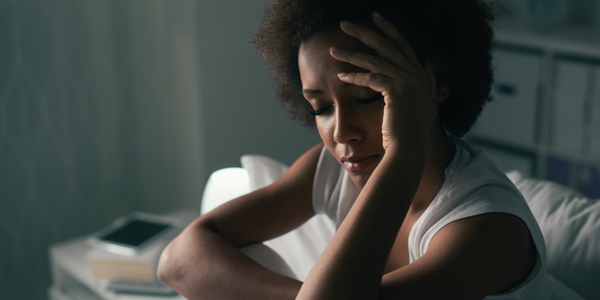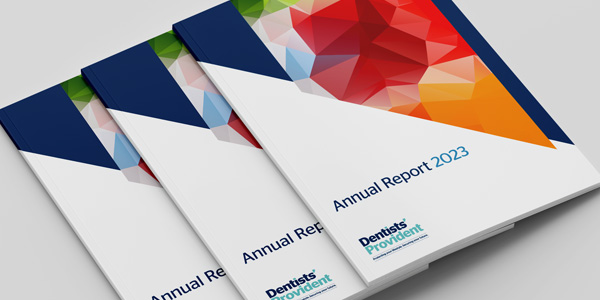
Like some animals, we tend to feel more like hibernating in the winter and the dark cold mornings make getting out of bed very difficult, but do you actually know if you are getting the right amount of sleep or is this something that should be on your new year’s resolution list?
Sleep can be an easy and natural end to the day for most of us and an incredible way for your body to regenerate, recuperate and even learn. This article explores aspects of our sleeping patterns and how we can maximise its benefit.
Why do we need to sleep?
Getting enough good quality sleep is a contributing factor to everyone’s good health, as we don’t function as well without it and that can lead to long-term health problems. The National Institutes of Health estimates that about 30% of us complain of sleep disruption and around 10% have the associated negative symptoms of lack of sleep. The NHS support this stating that one in three of us suffer from poor sleep.
So what is the right amount of quality sleep?
Sleep consists of four cycles, each lasting around an hour and a half and we need to experience all of them to wake up rested. Disturbed sleep is defined as us not going through each of these stages in full.
Legend has it that Margaret Thatcher famously survived on only four hours sleep a night and, more recently, Vladimir Putin boasted that he too got by on much the same. Scientists have suggested that there may be a gene variant that enables some people to function normally on less than five hours’ sleep a night. But generally, it’s widely accepted that most of us require more than this in order to function properly and remain healthy, so it is a health necessity rather than a lifestyle choice.
Dr Timothy Morgenthaler, president of the American Academy of Sleep Medicine, says: ‘Most adults need at least seven hours of quality sleep each night for optimal health, productivity and daytime alertness.’ So how do you know what is right for you and if you are getting enough sleep? Well, generally if you wake up tired and feel sleepy all day then it’s likely that you’re not.
What stops us sleeping?
Sleep: A Global Perspective highlighted global sleep trends and habits from a survey of nearly 8,000 people across 10 countries. Among a list of 13 factors that keep people up at night, respondents selected work (25%) and financial/economic issues (28%) as the most common sleep disruptors.
The survey, conducted by Philips, also found that most Brits felt sleep was important to them and that the majority (61%) believed they needed seven to nine hours each night to feel their most productive. But, while some 80% of respondents could see the need to improve their sleep, most had failed to take steps to address this.
Dentistry - a stressful profession
Joanna Taylor a psychotherapist and accredited clinical hypnotherapist has studied the effects of stress in the dental profession. One study she conducted in 2011 with 347 dentists and dental professionals, showed that more than 43% of respondents suffered with tiredness and 45% suffered with insomnia. A nationwide investigation of the stressful nature of dentistry conducted by Myers and Myers and published in the BDJ in 2014, found that 60% of those polled, reported difficulty in sleeping and 48% reported feeling tired for ‘no apparent reason’. Additionally, levels of psychological symptoms were high and the survey concluded that there was a need to develop interventions to reduce work-related stress in the profession.
Effects of sleep disruption
It is now largely agreed that regularly experiencing poor or disturbed sleep could put you at risk of serious medical conditions and could even shorten your life. One night of a lack of sleep is something we can usually cope with, however continual disturbed nights could cause a more serious effect; your brain can ‘fog’, you can start to feel down and you could put yourself at risk of an accident., Although, a Swedish study - reported in July 2015 - suggested that even losing one night’s sleep can actually alter the genes in our cells that control our biological clock.
Dr Simon Moore, chartered psychologist and media spokesperson for the British Psychological Society says ‘We know from psychological research on sleep quality and patterns that if people do not get sufficient REM stage sleep (rapid eye movement), which is the last stage and deepest level of a 90-minute sleep cycle, they subsequently make poorer decisions, communicate less effectively and deal with stress less well.’
Some of the more common effects of sleep deprivation include:
Changes in mood
People with insomnia often suffer fatigue, low energy, difficulty concentrating, mood disturbances, and decreased performance at work.
Obesity
Studies have shown that people who sleep less than seven hours a night are 30% more likely to be obese than those who get nine hours or more sleep. This is believed to be because sleep-deprived people have reduced levels of leptin (the chemical that makes you feel full) and increased levels of ghrelin (the hunger-stimulating hormone).
Immune system disruption
Prolonged lack of sleep can disrupt your immune system, so you are less able to fight off viruses.
A small research study reported in September 2015 in the clinical journal Sleep found that those people who had less than five hours sleep were more than four times more likely to catch a cold than those who slept more than seven hours.
Lifestyle health issues
Having prolonged periods of insufficient sleep has been linked to significant increases in blood pressure during night time hours. Other serious health problems that have been linked to poor sleep include a risk of Alzheimer’s, breast cancer, heart disease and stroke.
Two new studies in 2015 found further complications linked to poor sleep. The first revealed that people who are not getting enough sleep are also more prone to developing type 2 diabetes. It seems that this is caused by changing the way the body processes glucose. And the second found that night owls are more likely to develop metabolic syndrome and sarcopenia than early risers, even when they get the same amount of sleep.
Obstructive Sleep Apnoea (OSA)
OSA is where the walls of your throat relax and narrow while you sleep, which has an effect on your normal breathing. In the UK, it is estimated that around 4% of middle-aged men and 2% of middle-aged women have OSA. And an estimated 80% of people with OSA remain undiagnosed, so it appears that a substantial number of people may benefit from proper screening, diagnosis and treatment of OSA.
Your patients’ health
Dental conditions linked to lack of sleep
When you are going through medical history or health and wellbeing checks with your patients, do you ever ask them how much sleep they get?
Bruxism, for example, has been linked to OSA, and it has been found that nearly 70% of bruxism cases that occur during sleep are a symptom of stress or anxiety. Often, an oral examination and detailed medical history taking will shine a light on the problem and can be addressed with the patient being referred for an occlusal splint.
Aditi Desai has been a restorative dentist for more than 36 years and was one of the first dentists in the UK to gain accreditation from the European Academy of Dental Sleep Medicine. She is also a board member of the British Society of Dental Sleep Medicine. Dr Desai limits her practice predominantly to the management of sleep disorders. Based in Harley Street and London Bridge Hospital, she works with other physicians and ENT consultants as part of a multidisciplinary team who share a special interest in sleep medicine. She says: ‘I have seen an increase in the number of people seeking help for some sleep disorder or other, and I believe this is as a direct result of two things; an increase in obesity and the lifestyle choices for many people, affecting both quality and quantity of sleep. Heavy meals, late nights, smoking and an increase in alcohol intake all have a negative impact, as well as obesity and lack of exercise, dietary choices could cause other sleep disorders too, such as snoring and sleep apnoea.’
Sleep solutions
Professor Kevin Morgan, of Loughborough University’s Sleep Research Centre, has been researching psychological treatments for insomnia, focusing on self-help solutions. He says: ‘Cognitive therapy can help break this vicious circle by teaching you a different way of worrying. Do your worrying at a different time, write down your fears and discipline yourself not to worry about things around bedtime. If you have a sleep problem, it’s worth looking at your personal habits. Sleep is fragile. You’ve got to look after it.’
Joanna Taylor’s research identified that the stress management tools dentists used included techniques such as deep breathing, yoga and meditation to manage the stress that could cause insomnia.
There are some simple (and holistic) steps that could help you, your team and your patients have a better night’s sleep:
‘Sleep hygiene’
‘Sleep hygiene’ is the phrase often used to describe the ideal conditions and environment that encourage good sleep patterns. Experts in the field suggest many actions that can be taken to encourage sleep. Ensuring your bedroom is peaceful and relaxing by keeping it clutter-free, and maintaining a constant temperature for sleep of 16-19°C is ideal. Also turning off electronics before bed and while you are sleeping is recommended, because the light from these devices activates your brain. Also avoiding bright light in the evening can help to keep your sleep-wake rhythms in check.
Sleep preparation
According to Dr Nerina Ramlakhan, a sleep therapy consultant, the first 30 minutes after we get up in the morning and what we eat during the day can actually have an impact on how well we sleep! She suggests you should eat a balanced breakfast within 30 minutes of getting up, as it stabilises your blood sugar, kick starts your metabolism and helps to produce melatonin that helps you sleep. If you don’t eat then, your body can go into ‘crisis’ mode’ and start producing cortisol and adrenalin.
Also eating foods high in tryptophan such as tuna and lettuce before going to bed can activate the part of the brain that produces melatonin so this could also aid sleep.
Other tips include going to bed at the same time each night and getting up at the same time each morning, and avoiding large meals, caffeine and alcohol close to bedtime.
Mindfulness
A small clinical trial in 2012 championed the self-help practice of mindfulness and it concluded that mindfulness meditation led to a greater improvement in sleep quality, while acknowledging that future studies were needed to testify whether it had a part to play in helping to induce sleep.
The future of sleep
So what can we usefully use our sleep for in the future? Well learning has made a comeback and even though scientists first championed the idea in the 1950s, and Chandler in an episode of Friends in the 1990s tried to give up smoking using a hypnosis tape for women, more recent research has shown that there is now proof it could actually work. The New Scientist reported in June 2015 that under the right circumstances our sleeping brains can actually absorb new information and learn while we sleep. They suggested that napping straight after learning something new and using smells as information triggers were key areas that were shown to work.
Life’s stressors can keep anyone up at night but small changes can offset these triggers and help to prepare your body for the rest it needs. Goodnight, sleep tight.
References available on request.
This article is intended for information only. It is not designed to give financial or medical advice, nor is it intended to make any recommendations of the suitability of our plans for a particular individual. Full details of our contract can be found in our rules on our website www.dentistsprovident.co.uk. Dentists’ Provident Society Limited does not accept liability and responsibility for changes made to this information. Some of the information in this article has been obtained from third parties. While we believe the information to be reliable; we make no representations as to its accuracy and accept no responsibility or liability for any error, omission or inaccuracy in the data supplied by any third party.
If you have any questions, please contact our member services consultants by emailing press@dentistsprovident.co.uk or calling 020 7400 5710.
If you have any questions, please contact our member services consultants by emailing
memberservices@dentistsprovident.co.uk or calling 020 7400 5710.

Our 2024 Annual General Meeting will be held at 91-94 Saffron Hill, London, EC1N 8QP on Friday 24th Ma…
Read more
The 2023 annual report from Dentists’ Provident, a leading income protection provider for dental profe…
Read more
Our next exhibition is the British Dental Conference & Dentistry Show in May, where we look forward to meeting anyone interested in becoming a member or members wanting to discuss their plans.